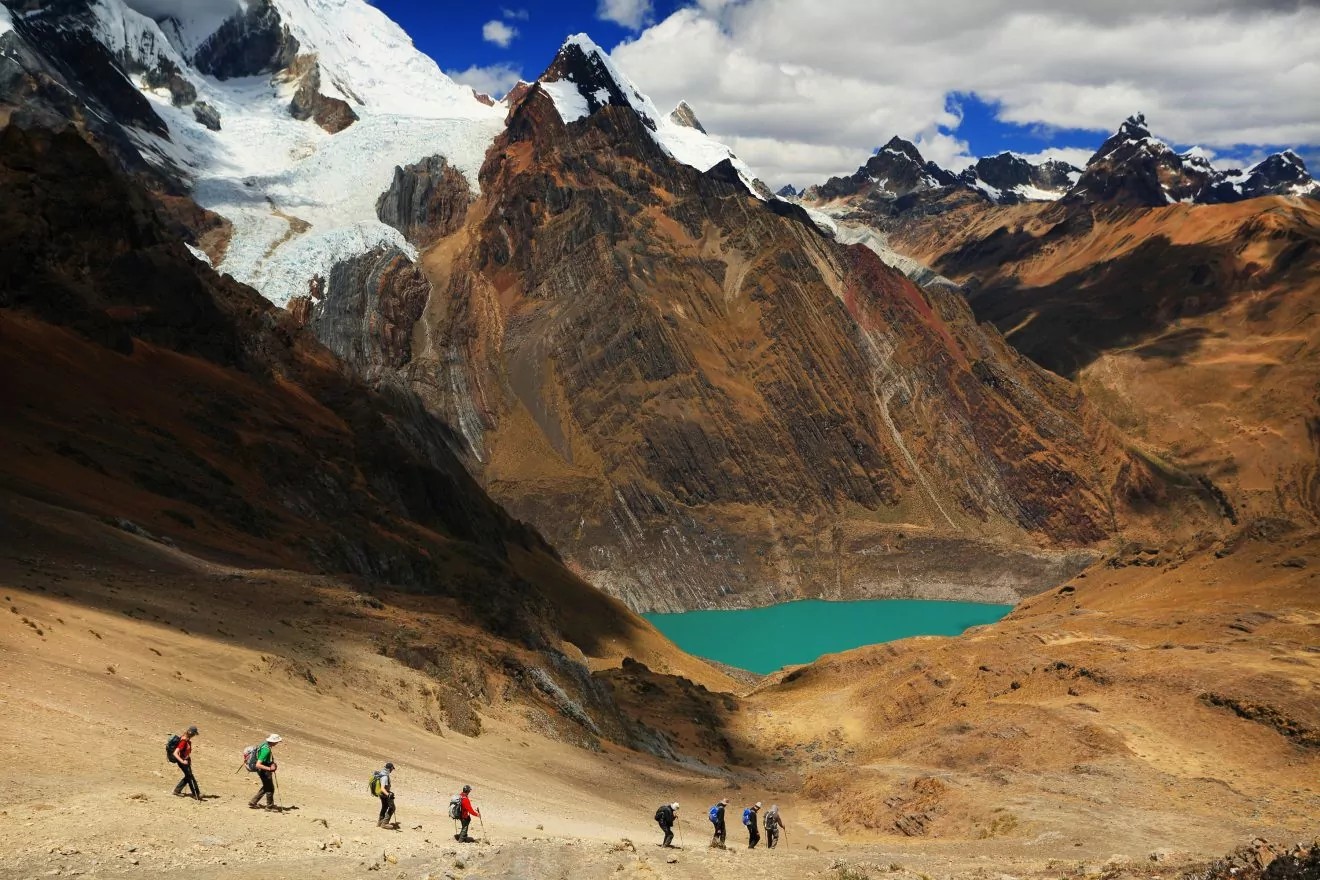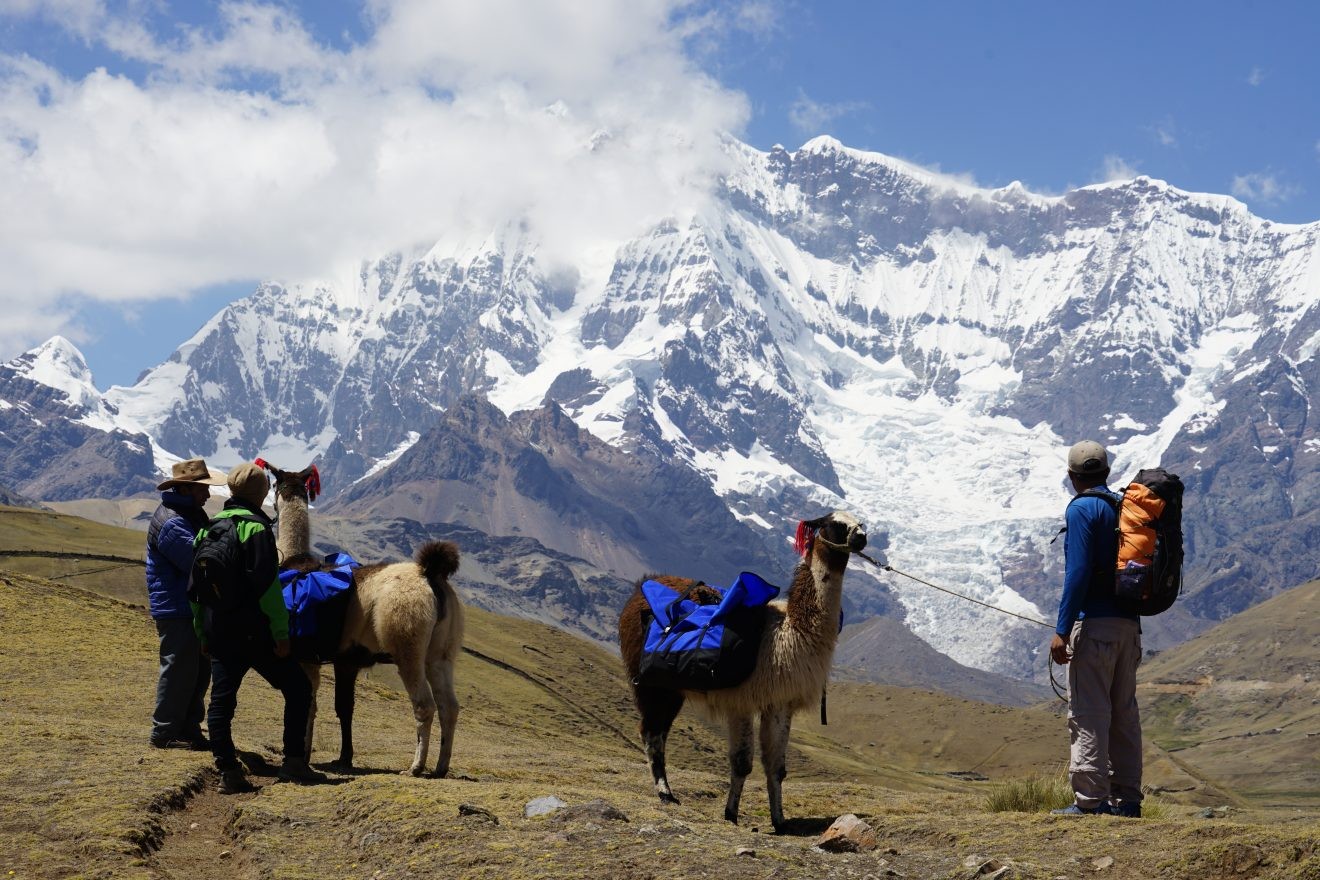Adventure tourism’s sustainability is ensured through conservation efforts, waste reduction, minimizing ecological footprint, supporting local economies, and long-term planning. SIXT.VN understands the importance of responsible travel, especially when exploring the diverse landscapes of Vietnam. We offer convenient services like airport transfers, hotel bookings, and tours, all designed to minimize environmental impact and support local communities, ensuring a memorable and sustainable travel experience. Think eco-conscious excursions, responsible travel, and sustainable tourism.
1. Why is Sustainability Important in Adventure Tourism?
Sustainability is crucial in adventure tourism because it ensures the preservation of natural environments, supports local communities, and promotes responsible travel practices. According to a report by the United Nations Environment Programme (UNEP) in 2023, sustainable tourism can contribute significantly to biodiversity conservation and economic development in local regions. Adventure tourism often takes place in sensitive ecosystems; therefore, sustainable practices are essential to minimize negative impacts. SIXT.VN prioritizes sustainable adventure travel, offering services that respect and protect Vietnam’s natural beauty.
1.1. Preserving Natural Environments
Sustainable adventure tourism helps preserve natural environments by minimizing pollution, reducing waste, and conserving resources. Activities like hiking, kayaking, and wildlife viewing can disrupt ecosystems if not managed responsibly. Sustainable practices ensure these activities are conducted in a way that minimizes harm to the environment.
1.2. Supporting Local Communities
Sustainable adventure tourism supports local communities by providing economic opportunities, respecting cultural traditions, and promoting community development. Tourism revenue can be reinvested in local infrastructure, education, and healthcare, improving the quality of life for residents. According to the Vietnam National Administration of Tourism (VNAT) in 2022, community-based tourism initiatives have significantly improved the livelihoods of rural communities in Vietnam.
1.3. Promoting Responsible Travel Practices
Sustainable adventure tourism promotes responsible travel practices by educating travelers about environmental and cultural issues, encouraging them to make informed choices, and advocating for responsible tourism policies. Responsible travel includes respecting local customs, minimizing environmental impact, and supporting local businesses.
 Sustainable adventure tourism promotes responsible travel practices
Sustainable adventure tourism promotes responsible travel practices
2. What are the Key Components of Sustainable Adventure Tourism?
The key components of sustainable adventure tourism include environmental conservation, social responsibility, and economic viability. A study by the Adventure Travel Trade Association (ATTA) in 2021 highlighted that sustainable adventure tourism businesses often outperform their non-sustainable counterparts in terms of customer satisfaction and long-term profitability. SIXT.VN integrates these components into its services to offer travelers a sustainable and enriching experience in Vietnam.
2.1. Environmental Conservation
Environmental conservation involves protecting natural resources, minimizing pollution, and reducing waste. This can be achieved through practices such as using renewable energy, conserving water, and implementing waste management programs.
2.2. Social Responsibility
Social responsibility includes respecting local cultures, supporting community development, and promoting human rights. This can be achieved through practices such as employing local guides, supporting local businesses, and contributing to community projects.
2.3. Economic Viability
Economic viability ensures that tourism businesses are financially sustainable and can contribute to the local economy. This can be achieved through practices such as diversifying revenue streams, investing in employee training, and supporting local suppliers.
3. How Can Adventure Tourism Companies Contribute to Local and Global Conservation Efforts?
Adventure tourism companies can contribute to local and global conservation efforts by investing in conservation projects, promoting responsible travel practices, and advocating for sustainable tourism policies. According to research from the Center for Responsible Travel (CREST) in 2020, companies that actively engage in conservation efforts often see increased customer loyalty and positive brand reputation. SIXT.VN is committed to supporting conservation efforts in Vietnam through partnerships with local organizations and promoting eco-friendly tourism practices.
3.1. Investing in Conservation Projects
Companies can invest in conservation projects by donating a portion of their profits to environmental organizations, sponsoring conservation initiatives, or directly managing conservation projects. This can include projects such as reforestation, wildlife protection, and habitat restoration.
3.2. Promoting Responsible Travel Practices
Companies can promote responsible travel practices by educating travelers about environmental issues, encouraging them to minimize their environmental impact, and providing them with opportunities to support conservation efforts. This can include offering eco-friendly tours, providing information on responsible travel tips, and organizing volunteer opportunities.
3.3. Advocating for Sustainable Tourism Policies
Companies can advocate for sustainable tourism policies by working with government agencies, industry associations, and other stakeholders to promote responsible tourism practices. This can include lobbying for environmental regulations, supporting sustainable tourism certification programs, and promoting responsible tourism standards.
4. What Strategies Can Be Implemented to Reduce Waste in Adventure Tourism?
Strategies to reduce waste in adventure tourism include using reusable products, minimizing packaging, and implementing waste management programs. A report by the World Tourism Organization (UNWTO) in 2022 emphasized that reducing waste is crucial for minimizing the environmental impact of tourism and promoting sustainable practices. SIXT.VN incorporates these strategies into its operations to reduce waste and promote environmental sustainability in Vietnam.
4.1. Using Reusable Products
Using reusable products, such as water bottles, food containers, and utensils, can significantly reduce waste. Companies can provide travelers with reusable items and encourage them to avoid single-use plastics.
4.2. Minimizing Packaging
Minimizing packaging by purchasing products with minimal packaging, using bulk purchasing, and avoiding individually wrapped items can reduce waste. Companies can also encourage suppliers to use eco-friendly packaging materials.
4.3. Implementing Waste Management Programs
Implementing waste management programs, such as recycling, composting, and waste reduction initiatives, can help reduce the amount of waste sent to landfills. Companies can also educate travelers about proper waste disposal practices and provide them with convenient recycling facilities.
 Implementing waste management programs can help reduce the amount of waste sent to landfills
Implementing waste management programs can help reduce the amount of waste sent to landfills
5. How Can Adventure Tourism Minimize Its Ecological Footprint?
Adventure tourism can minimize its ecological footprint by using sustainable transportation, conserving energy, and protecting biodiversity. According to a study by the Global Sustainable Tourism Council (GSTC) in 2023, minimizing the ecological footprint is essential for ensuring the long-term sustainability of tourism destinations. SIXT.VN is committed to reducing its ecological footprint by offering eco-friendly transportation options and promoting energy conservation.
5.1. Using Sustainable Transportation
Using sustainable transportation options, such as public transportation, bicycles, and electric vehicles, can reduce carbon emissions and minimize air pollution. Companies can also encourage travelers to walk or cycle whenever possible.
5.2. Conserving Energy
Conserving energy by using energy-efficient appliances, turning off lights when not in use, and using renewable energy sources can reduce energy consumption and minimize carbon emissions. Companies can also educate travelers about energy conservation tips.
5.3. Protecting Biodiversity
Protecting biodiversity by avoiding activities that harm wildlife, respecting natural habitats, and supporting conservation efforts can help preserve ecosystems and protect endangered species. Companies can also educate travelers about the importance of biodiversity conservation.
6. Why is Supporting Local Economies Important in Sustainable Adventure Tourism?
Supporting local economies is important in sustainable adventure tourism because it provides economic opportunities for local communities, promotes community development, and helps preserve cultural traditions. Research from the International Ecotourism Society (TIES) in 2022 showed that supporting local economies is a key factor in ensuring the long-term sustainability of tourism destinations. SIXT.VN prioritizes supporting local economies in Vietnam by employing local guides, partnering with local businesses, and promoting local products and services.
6.1. Providing Economic Opportunities
Providing economic opportunities for local communities by employing local guides, purchasing goods and services from local businesses, and supporting local entrepreneurs can help reduce poverty and improve the quality of life for residents.
6.2. Promoting Community Development
Promoting community development by investing in local infrastructure, education, and healthcare can improve the well-being of residents and strengthen community resilience.
6.3. Preserving Cultural Traditions
Preserving cultural traditions by supporting local artisans, promoting cultural events, and respecting local customs can help maintain cultural diversity and enhance the tourism experience.
7. What Does a Long-Term Sustainability Plan Entail for Adventure Tourism Companies?
A long-term sustainability plan for adventure tourism companies entails setting measurable goals, implementing sustainable practices, and monitoring progress over time. A report by McKinsey & Company in 2021 highlighted that companies with comprehensive sustainability plans often achieve better financial performance and greater stakeholder engagement. SIXT.VN has developed a long-term sustainability plan that includes reducing carbon emissions, minimizing waste, supporting local communities, and promoting responsible travel practices in Vietnam.
7.1. Setting Measurable Goals
Setting measurable goals for reducing environmental impact, supporting local communities, and promoting responsible travel practices can provide a clear roadmap for achieving sustainability objectives.
7.2. Implementing Sustainable Practices
Implementing sustainable practices, such as using renewable energy, conserving water, and supporting local businesses, can help reduce environmental impact and promote economic development.
7.3. Monitoring Progress Over Time
Monitoring progress over time by tracking key performance indicators, conducting regular audits, and reporting on sustainability performance can help ensure that companies are meeting their sustainability goals and making continuous improvements.
 SIXT.VN is committed to providing sustainable services in Vietnam
SIXT.VN is committed to providing sustainable services in Vietnam
8. What Adventure Travel Trends Should Be Avoided to Ensure Sustainability?
Adventure travel trends that should be avoided to ensure sustainability include unsafe animal interactions, private jet experiences, and cruise ships. According to a report by the World Wildlife Fund (WWF) in 2023, these trends can have significant negative impacts on the environment and local communities. SIXT.VN advises travelers to avoid these trends and opt for more sustainable travel options in Vietnam.
8.1. Unsafe Animal Interactions
Unsafe animal interactions, such as riding elephants, petting tigers, and swimming with dolphins, can harm animals and disrupt their natural habitats. Companies should promote responsible wildlife viewing and avoid activities that exploit animals.
8.2. Private Jet Experiences
Private jet experiences are highly carbon-intensive and contribute to air pollution. Travelers should opt for more sustainable transportation options, such as commercial flights, trains, or buses.
8.3. Cruise Ships
Cruise ships can generate large amounts of waste and pollution, and they can also disrupt local communities. Travelers should consider alternative travel options, such as independent travel or small-group tours.
9. How Can Travelers Ensure Their Adventure Travel is Sustainable Before Booking?
Travelers can ensure their adventure travel is sustainable before booking by researching companies, looking for sustainability certifications, and asking questions about sustainability practices. A survey by Booking.com in 2022 revealed that a majority of travelers are actively seeking sustainable travel options. SIXT.VN encourages travelers to do their research and choose companies that prioritize sustainability in Vietnam.
9.1. Researching Companies
Researching companies by reading reviews, checking their websites, and contacting them directly can provide valuable information about their sustainability practices.
9.2. Looking for Sustainability Certifications
Looking for sustainability certifications, such as the GSTC certification or the B Corp certification, can help identify companies that meet high standards for environmental and social performance.
9.3. Asking Questions About Sustainability Practices
Asking questions about sustainability practices, such as waste management, energy conservation, and community support, can help travelers make informed decisions about their travel choices.
10. What are the Benefits of Choosing Sustainable Adventure Travel?
Choosing sustainable adventure travel offers numerous benefits, including preserving natural environments, supporting local communities, and promoting responsible tourism. According to a study by the Tourism Concern in 2021, sustainable tourism can contribute to long-term economic development and environmental conservation. SIXT.VN believes that sustainable adventure travel enhances the travel experience and creates positive impacts in Vietnam.
10.1. Preserving Natural Environments
Sustainable adventure travel helps preserve natural environments by minimizing pollution, reducing waste, and conserving resources.
10.2. Supporting Local Communities
Sustainable adventure travel supports local communities by providing economic opportunities, promoting community development, and preserving cultural traditions.
10.3. Promoting Responsible Tourism
Sustainable adventure travel promotes responsible tourism by educating travelers about environmental and cultural issues, encouraging them to make informed choices, and advocating for responsible tourism policies.
By choosing SIXT.VN for your adventure travel needs in Vietnam, you are not only ensuring a memorable and enriching experience but also contributing to the sustainability of this beautiful country. Contact us today at Hotline/Whatsapp: +84 986 244 358 or visit our website at SIXT.VN to learn more about our sustainable travel options, including airport transfers, hotel bookings, and tours. Address: 260 Cau Giay, Hanoi, Vietnam. Let us help you plan your sustainable adventure in Vietnam!
FAQ: What Makes Adventure Tourism Sustainable?
1. What is sustainable adventure tourism?
Sustainable adventure tourism is tourism that minimizes negative impacts on the environment and local communities while supporting conservation efforts and promoting responsible travel practices.
2. Why is sustainability important in adventure tourism?
Sustainability is crucial because it ensures the preservation of natural environments, supports local communities, and promotes responsible travel practices, ensuring these destinations remain vibrant for future generations.
3. How can adventure tourism companies contribute to conservation?
Companies can contribute by investing in conservation projects, promoting responsible travel practices, and advocating for sustainable tourism policies.
4. What are some strategies to reduce waste in adventure tourism?
Strategies include using reusable products, minimizing packaging, and implementing effective waste management programs.
5. How can adventure tourism minimize its ecological footprint?
It can minimize its footprint by using sustainable transportation, conserving energy, and actively protecting biodiversity.
6. Why is supporting local economies important in sustainable adventure tourism?
Supporting local economies provides economic opportunities for communities, promotes community development, and helps preserve cultural traditions.
7. What does a long-term sustainability plan entail for adventure tourism companies?
It entails setting measurable goals, implementing sustainable practices, and monitoring progress over time to ensure continuous improvement.
8. What adventure travel trends should be avoided for sustainability?
Trends to avoid include unsafe animal interactions, private jet experiences, and cruise ships due to their negative environmental and social impacts.
9. How can travelers ensure their adventure travel is sustainable before booking?
Travelers can research companies, look for sustainability certifications, and ask questions about sustainability practices.
10. What are the benefits of choosing sustainable adventure travel?
The benefits include preserving natural environments, supporting local communities, promoting responsible tourism, and enhancing the overall travel experience.



